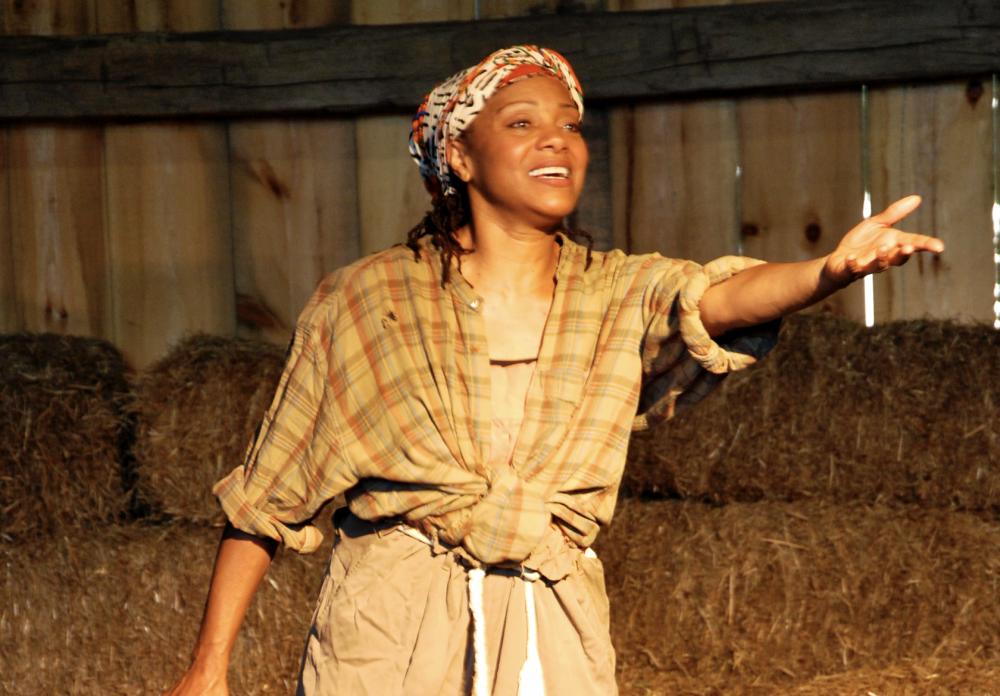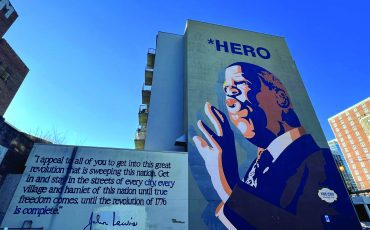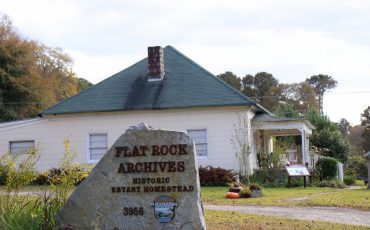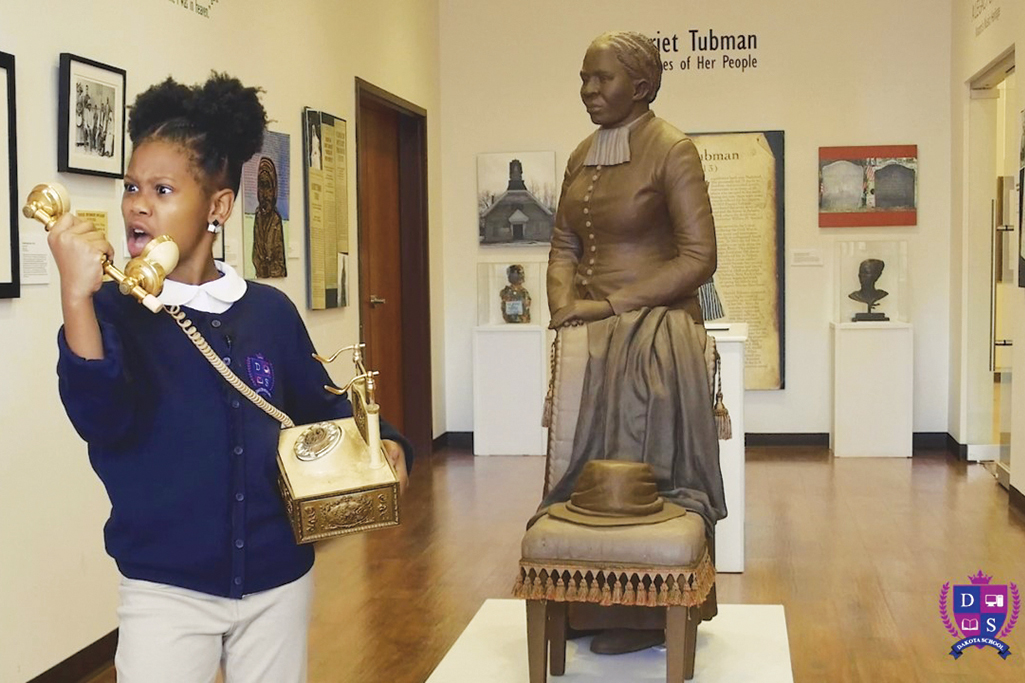Celebrate African American History in Atlanta
There are so many ways to learn about the heritage and contributions of African Americans in Atlanta. Make sure to also check out places to road trip to learn about black history.
Table of Contents
Events:
Black History Month Festival at Kennesaw State University
Join Kennesaw State University as they celebrate Black History Month with music and performances. Feb. 7, 9, 13, 16 and 23.
Black History Month Movie Series at Atlantic Station
Black Heritage Festival at Shorty Howell Park Activity Building
Visit with merchants while enjoying music and food at this celebration of African American history and culture. Feb. 10.
Atlanta Black Expo at The Cobb Galleria
Featuring a wide range of Black-owned businesses, find services and products to fit your life. Feb. 10.
Blackout Market & Open-Mic Night at Lawrenceville Arts Center
This annual event celebrates culture, creativity and commerce from local performers and artists and Black-owned businesses. Feb. 16.
Bus Tour: Explore Black History at Lawrenceville Female Seminary
Explore the history of African American culture in Gwinnett County. Feb. 17.
Pop-in for Family Fun at Marietta History Center
Enjoy a free day of activities themed around Black History Crafts. Feb. 17.
A Tribute to Black History in DeKalb at DeKalb History Center
View history with author Dr. Herman “Skip” Mason Jr. and his book “African American Life in DeKalb County, 1823-1970,” listen to music and more. Feb. 22.
Hawks vs. Raptors: HBCU Night at State Farm Arena
Celebrate the educational excellence of more than 100 Historically Black Colleges and Universities at this annual event with an exclusive T-shirt and a $10 food voucher. Feb. 23.
My Sister’s Keeper Honoring Black History Month at The Cultural Arts Center
This exhibit honors Black History Month by showcasing the work and life journeys of five artists. Through Feb. 23.
Ruth and the Green Book at Center for Puppetry Arts
Set in the 1950s, Ruth and her family travel from Chicago to Alabama using “The Green Book,” a guide that helped many African Americans find a safe route to travel through segregated America. Through Feb. 25.
Celebrate Black History Month at Children’s Museum of Atlanta
Stop by the Science Bar, Art Studio, Jane’s Innovation Station and the CMA Stage to learn more about African American leaders in science, art and innovation. Through Feb. 29.
Roswell Roots Festival in Roswell
This community-wide, month-long celebration highlights education, history and cultural awareness in the City of Roswell with artists, musicians, poets, historians and more. Through March 2.
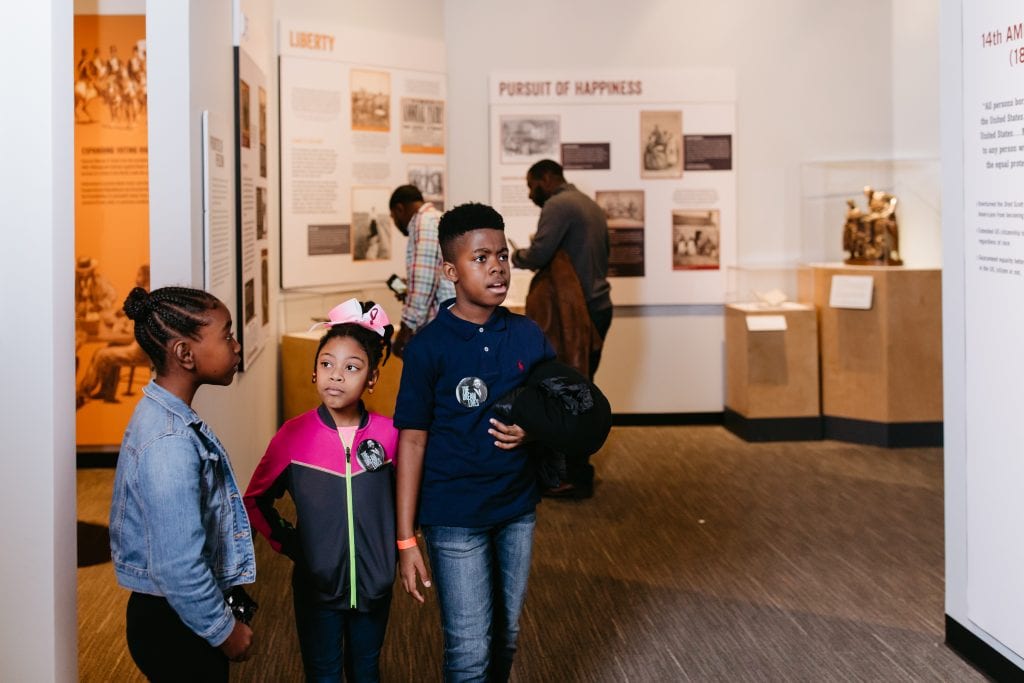
Atlanta History Center
Sites:
Martin Luther King Jr. National Historical Park
Managed by the National Park Service, visit Martin Luther King Jr.’s birth home, church and tomb to learn more about his life and legacy. The Fire Station No. 6 was built in 1894 and served the community until 1991. At the museum, hear about the desegregation of the Atlanta Fire Department and view a 1927 American LaFrance fire engine. The Birth Home is temporarily closed
for rehabilitation work.
APEX Museum
Named for the “African-American Panoramic Experience,” this museum features exhibits, such as “Women in STEM,” “Africa: The Untold Story” and “Sweet Auburn Street of Pride.” View more than 6,000 years of the cultural history of Africa.
Center for Civil and Human Rights
This center connects the American Civil Rights Movement to today’s Global Human Rights Movements with images, artifacts and storytelling.
Atlanta History Center
Explore the history of Atlanta and Georgia with exhibits like “Gatheround: Stories of Atlanta” and “Turning Point: The American Civil War.” Online exhibits also showcase important history, such as “Black Citizenship in the Age of Jim Crow,” which illustrates the African American struggle for full citizenship and racial equality that unfolded in the 50 years following the Civil War.
The King Center
Established by Coretta Scott King in 1968, The Martin Luther King Jr. Center for Nonviolent Social Change preserves Dr. King’s legacy, as you can view exhibits on him, Coretta Scott King and Mahatma Gandhi.
Atlanta University Center Historic District
This National Historic Landmark includes a group of the country’s major higher education institutions for African Americans: Atlanta University, Clark, Morehouse, Morris Brown and Spelman Colleges, and the Interdenominational Theological Center.
Noble Hill-Wheeler Memorial Center
Built in 1923, this was the first school in northwest Georgia constructed with Rosenwald funds for the education of Black children. The site is now a Black history museum and cultural center.
George Washington Carver State Park
In 1950, when the Allatoona Dam was completed in Cartersville, Governor Talmadge established the nearby 345-acre George Washington Carver Park, the first “Georgia State Park for Negroes.” Well-known entertainers, including Ray Charles and Little Richard, performed at the park.
The Herndon Home Museum
This museum was the residence of Alonzo Herndon, a former slave who founded what would become the Atlanta Life Insurance Company, and his legacy changed the Black middle class in America. Temporarily closed.
Clark Atlanta University Art Museum
The school began gathering art pieces in 1942, when exhibition opportunities for African American artists were limited due to segregation. Juried exhibitions have presented more than 900 artists from across the country, and related programs teach and stimulate interest in African American art.
South-View Cemetery
Founded in 1886 under the premise that a dignified burial place should be available for all, these grounds carried no restriction as to race, creed or religious affiliation, which was different from other Southern cemeteries operating during the same period.
The Madame C.J. Walker Museum
Learn about America’s first female self-made millionaire, and hear stories about WERD, the first Black-owned radio station in America.
Flat Rock Archives
Located in Stonecrest, this African American historical museum includes the 20th century Georgian cottage of Rev. T.A. Bryant and the Historic Flat Rock Cemetery with burials dating back to enslaved people.
Oakland Cemetery
In 1976, Oakland Cemetery was listed on the National Register of Historic Places. The cemetery has several different areas and gardens, including the Historic African American Burial Grounds, which were the burial grounds for slaves and free African Americans. The cemetery is also the final resting place for Bishop Wesley John Gaines, who founded Morris Brown College; Rev. Frank Quarles, the founder of the Atlanta Baptist Female Seminary; and Carrie Steele Logan, who founded the first orphanage for African Americans in Atlanta. Oakland Cemetery is expected to reopen on Feb. 1.
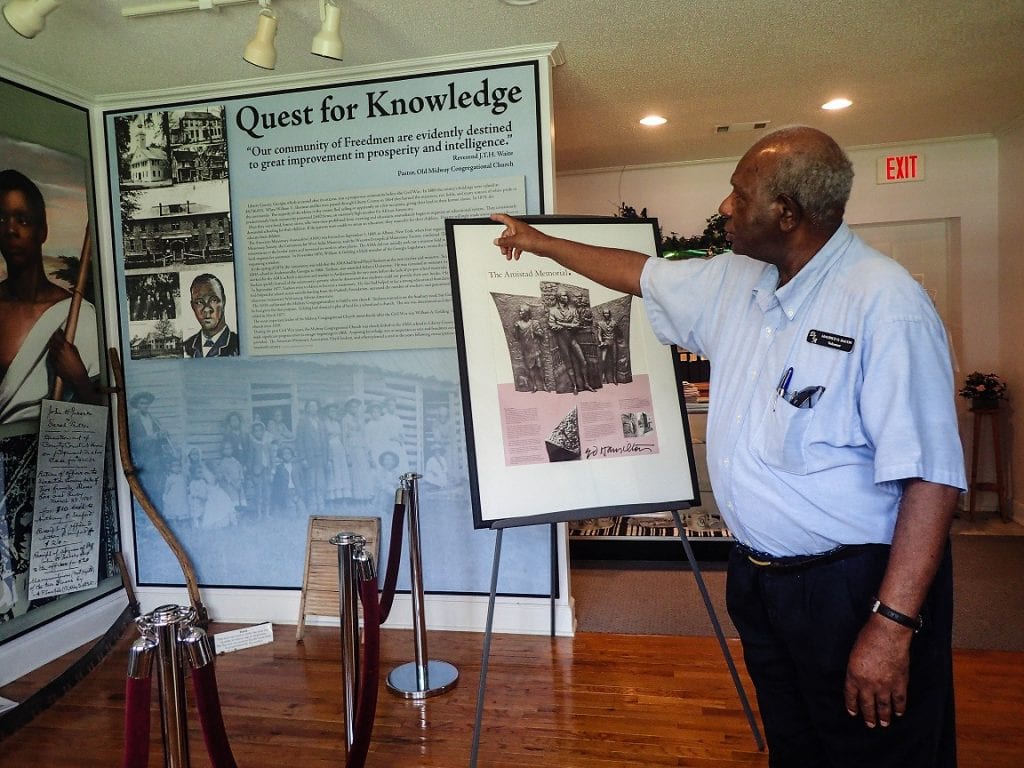
Dorchester Academy
Beyond Atlanta
If you’re interested in traveling and spending more time learning about Black history and the Civil Rights Movement, travel around Georgia to see significant spots.
The National Park Service created a national We Shall Overcome travel itinerary with churches, private residences and public sites of protest that spoke to the history. Check out Georgia’s three spots and learn more about the African American Civil Rights Movement.
Explore important destinations and sites in Georgia, along with the history and stories, at civilrightstrail.com/state/georgia.
In Savannah, the Pin Point Heritage Museum allows you to experience the Gullah/Geechee culture firsthand with a refurbished museum complex, multimedia presentations and beautiful views of the marsh.
Also in Savannah, the Ralph Mark Gilbert Civil Rights Museum showcases the life story of Ralph Mark Gilbert, who is remembered as the father of the 20th century Civil Rights Movement in Savannah. You’ll also learn about the NAACP’s fight for voting rights.
Explore the Gospel Pilgrim Cemetery, where many of Athens’ prominent African Americans were laid to rest.
The Ma Rainey Home honors the legendary “Mother of Blues” Ma Rainey, and this is the spot where she retired.
Founded in 1882 by trustees from the Methodist Episcopal Church South and the Colored Methodist Episcopal Church in America, Paine College was coeducational from the beginning with its goal of educating African American youth.
Dorchester Academy was founded in 1871 as a school for freed slaves and now serves as an African American history museum and community center.
The Tubman African American Museum is dedicated to educating people about the art, history and culture of African Americans to enrich cultural understanding and inspire positive change.
Head to Warner Robins to the Museum of Aviation to view the statue of Eugene Bullard, who enlisted in the French Foreign Legion before the U.S. Armed Forces were desegregated in 1948.
For more, connect art and Black history with murals across metro Atlanta. Explore areas across the Southeast that are significant to Black history.
Past events:
We Shall Overcome: African American Stories from Civil War to Civil Rights at Oakland Cemetery
This 75-minute tour explores the lives and accomplishments of African Americans in Atlanta. Feb. 3.
Our Roots, Our Journey: An Interrelated Sequence of Stories at Southwest Arts Center
Be immersed in a world of captivating tales as different storytellers share unique stories that’ll entertain and inspire. Feb. 4.


